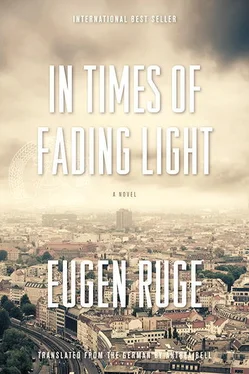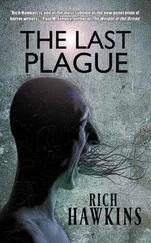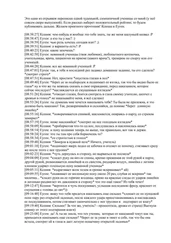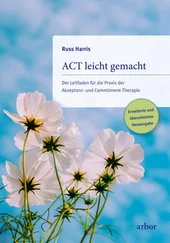She poured herself another tiny sip. The alcohol would have worked its way through her system long before she had to take Charlotte back to the nursing home. Just one sip more! Then she would put the bottle back in the pantry—promise! But she needed that one more sip now: the idea of strange people moving in here sometime, maybe soon, ate away at her guts. And almost worse than the idea that they would be shameless enough to take over everything, just as it was, was the thought that the new owners might tear it all down, because East German stuff wasn’t good enough for them. She saw her kitchen tiles already lying on the scrap heap… oh, how well she remembered picking up those tiles in her trailer in a backyard somewhere, in the pouring rain… She remembered the sly face of the janitor who had “appropriated” the mixer faucets from some quota supplied to the district authorities… she remembered everything, and she remembered, as she took what was really going to be her very last sip from the bottle, what Kurt had said to her two weeks ago:
“Then we’ll just look for a practical little apartment. This house is too big for the two of us anyway!”
The melting snow was still dripping on the zinc of the window sills. On the radio, they were talking about the dissolution of the Soviet Union again, and although this was the umpteenth time that Irina had heard the news of it, she stood by the window with the green cabbage in her hand… for a moment she looked out at the soft soil of the garden, which was still half covered with remnants of snow, and it suddenly seemed to her really improbable that once, in the dim and distant past, that had been her… crawling on her stomach over the cold, muddy ground, howling, cursing, her fingers grazed… and how heavy a wounded man was! And the way back to your own lines was longer and longer… and just as she was wondering whether she would be justified in taking one more tiny little symbolic sip, drinking to the fall of the Soviet Union, a car hooted its horn outside.
She quickly went to the window in the hall and looked out: Catrin was just closing the gate, and Sasha was getting out of a big, silver-gray car that made her own Lada look like a museum piece.
Irina had last seen Catrin in the summer, and now she remembered that even then she had noticed a change in her: always rather ungainly and cheaply dressed, she had suddenly become something of a glamorous figure. Whether because of her Western clothes (she was wearing a classic dark skirt suit), or her (presumably fake) suntan, Catrin suddenly looked like the women in the catalogs that the postman had recently taken to putting, unasked, into mailboxes. To top it all off, she was wearing very high heels, so that she towered above Irina.
In contrast to her outer appearance, her behavior was noticeably shy. She held ostentatiously on to Sasha, half hiding behind him. She greeted Irina smiling, in a soft voice, looked at her inquiringly from below (she actually managed, despite her height, to look at Irina from below ), in short, her attitude struck Irina from the first moment as false, a pretense, almost insulting.
But even Sasha seemed a little strange to her at first. Maybe it was just his hairstyle—he had shaved off his side-whiskers, in line with current fashion. His unusually wide-legged jeans (he always used to favor the sort with very narrow legs), and the smart jacket in some coarsely woven fabric for which Irina didn’t know the right word, somehow made him look more mature, set in his ways. But when he hugged her she caught his body odor, and then she had only to see the shimmer of gray in his hair and her eyes filled with tears.
“Oh, Mama,” said Sasha. “Everything’s all right.”
Sasha, it seemed, was in excellent spirits. Irina took the green cabbage apart and listened to what he had to tell her: about the new apartment— You must both come and see us soon! —and about the new car, and about the bloody autobahns in the East where they had been stuck in the traffic for almost an hour; then about Paris, which they had visited recently, but they hadn’t liked it as much as London, although the food in London was terrible, almost as bad as in the GDR, Sasha assured her, telling the story of how they had tried in vain to get fish and chips in London, while Catrin, giggling, agreed with him, shifting from foot to foot and constantly changing her posture in a way that infuriated Irina.
“What do you have that we can drink a toast in?” asked Sasha.
“Whisky?”
“Okay,” said Sasha. “Because there’s a reason! I’m going to direct plays at the theater in Moers. I signed the contract two days ago.”
Irina tried to look happy about the news.
“Hey, Mama, it’s great,” said Sasha. “This is the first time I’ll be directing productions in a real theater!”
“Well then, prost, ” said Irina—and suddenly paused.
“Seems to be something burning,” said Catrin.
Sure enough, she had forgotten to turn down the gas… Quickly, she took the roasting dish out of the oven. All the water had evaporated, and there was an alarming amount of smoke.
“Can I help?” asked Catrin.
But Irina energetically waved this offer away. “You two take your things to Sasha’s room. I can manage.”
Irina closed the kitchen door and inspected the damage—it was within bounds. She removed a piece of skin from the back of the goose, scraped out the casserole, let it cool off briefly. Meanwhile she stirred half a jar of honey into three-quarters of a liter of port, then poured it over the goose and put the goose back in the oven.
“Everything okay?” Sasha put his head around the door.
“Everything okay,” said Irina.
“Right,” said Sasha, picking up his glass again.
“Are you well?” Irina asked.
But instead of answering, Sasha asked back, “How are you, Mama?”
“Fine,” said Irina, shrugging her shoulders.
“What’s the matter?”
“You don’t know what’s going on here,” said Irina. “You’re never here.”
“Oh, Mama, let’s not discuss that.”
“And they’ll be cutting our pension,” said Irina quickly, to divert him from the sore point—Moers.
“Nonsense,” said Sasha. “Those are only rumors. You two will be fine! You ought to enjoy life a bit! Go to Paris! Come and visit us!”
Sasha took her firmly by the shoulders and looked into her face. “Mama, Catrin doesn’t have anything against you.”
“I didn’t say she did.”
“Then that’s all right,” said Sasha. “Okay? Everything all right?”
Irina nodded. She tapped two or three cigarettes out of her pack and held them out to him.
“And more good news,” said Sasha. “I’ve given up smoking.”
A little later Kurt was back again. Without Charlotte.
“Well… ” he said, and went on to tell them, briefly and reluctantly, that Charlotte was sick. She hadn’t known him, she had hardly been conscious. And the doctor had given him to understand that, well, they must be prepared for the worst.
For a moment no one said anything. Sasha stood in the doorway of the conservatory, looking out (or was he looking in?) at the small failure of a Christmas tree— Kurt’s Christmas tree: lumpy tinsel, blue cosmetic cotton imitating snow. Catrin assumed a mournful expression, as if Charlotte were already dead. Irina was cross.
She knew it was wrong for her to feel cross. Charlotte couldn’t help it if she was dying now. All the same, Irina was cross. She silently withdrew to the kitchen and began peeling potatoes for the dumplings. She tried to justify her lack of emotion by resorting to the long list of Charlotte’s injuries to her feelings. No, she hadn’t forgotten how she had scraped out the cracks in the wood of the cloakroom alcove. How Charlotte had wanted to marry Kurt off to that Gertrud… the worst time of her life, thought Irina, as she put the potatoes on and poured herself a whisky—at least she wasn’t going to have to drive today! Worse than the war, she thought. Worse than the first German artillery attack, God knows.
Читать дальше












